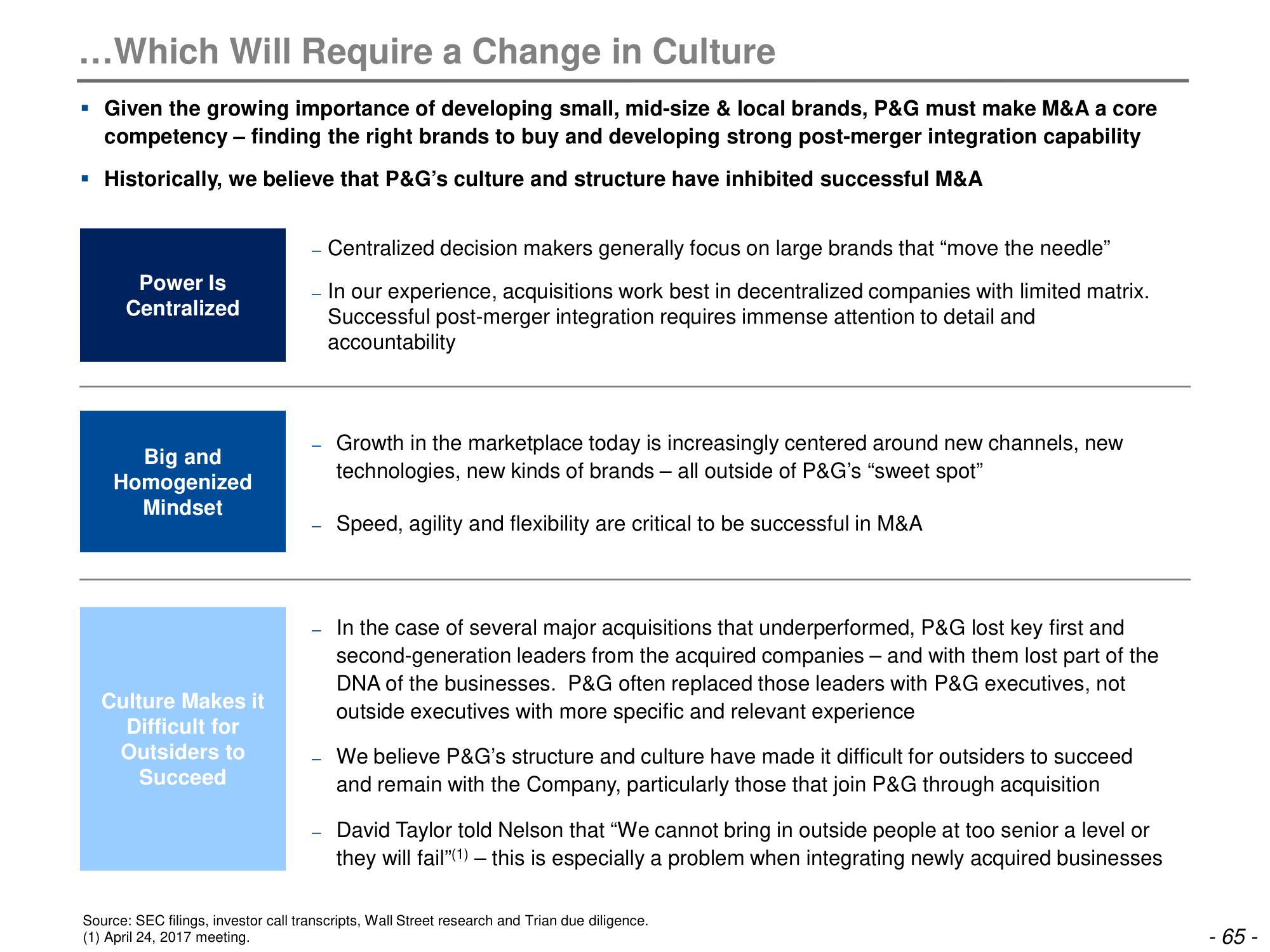Trian Partners Activist Presentation Deck
...Which Will Require a Change in Culture
Given the growing importance of developing small, mid-size & local brands, P&G must make M&A a core
competency - finding the right brands to buy and developing strong post-merger integration capability
Historically, we believe that P&G's culture and structure have inhibited successful M&A
M
Power Is
Centralized
Big and
Homogenized
Mindset
Culture Makes it
Difficult for
Outsiders to
Succeed
Centralized decision makers generally focus on large brands that "move the needle"
- In our experience, acquisitions work best in decentralized companies with limited matrix.
Successful post-merger integration requires immense attention to detail and
accountability
-
-
-
-
Growth in the marketplace today is increasingly centered around new channels, new
technologies, new kinds of brands - all outside of P&G's "sweet spot"
Speed, agility and flexibility are critical to be successful in M&A
In the case of several major acquisitions that underperformed, P&G lost key first and
second-generation leaders from the acquired companies and with them lost part of the
DNA of the businesses. P&G often replaced those leaders with P&G executives, not
outside executives with more specific and relevant experience
We believe P&G's structure and culture have made it difficult for outsiders to succeed
and remain with the Company, particularly those that join P&G through acquisition
David Taylor told Nelson that "We cannot bring in outside people at too senior a level or
they will fail"(1) - this is especially a problem when integrating newly acquired businesses
Source: SEC filings, investor call transcripts, Wall Street research and Trian due diligence.
(1) April 24, 2017 meeting.
- 65 -View entire presentation